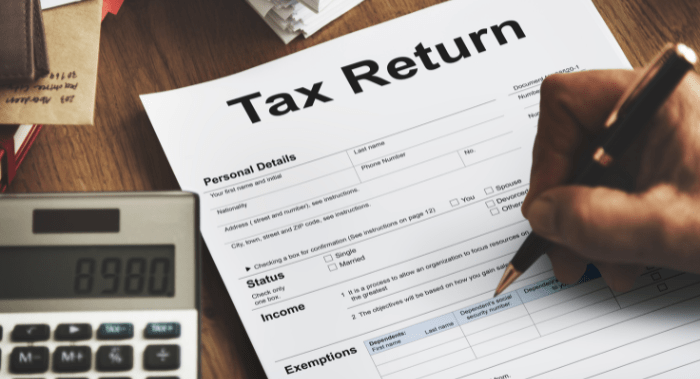
How Exactly Do Tax Returns Work?
Tax season often brings a mix of apprehension and confusion, especially when it comes to understanding tax returns. For many Americans, tax returns are a once-a-year interaction with a complex system that can seem shrouded in mystery.
Let’s explore the purpose of tax returns, how they work, how to ensure accuracy, and some lesser-known facts that can empower the average taxpayer.
Why Do Tax Returns Exist?
Tax returns are essential documents that taxpayers use to report their income, expenses, and other pertinent tax information to the Internal Revenue Service (IRS). The primary purpose of a tax return is to determine the correct amount of tax owed by or to the taxpayer.
It’s a reconciliation process; over the course of the year, most employees have taxes withheld from their paychecks based on estimated obligations. The tax return calculates the actual amount due, which can lead to either a tax bill or a refund.
How Do Tax Returns Work?
- Reporting Income: You report income from various sources, including wages, dividends, and interest.
- Claiming Deductions and Credits: Deductions reduce taxable income, while credits reduce your tax bill directly. Common deductions include mortgage interest and charitable donations, while credits can include education expenses or child tax credits.
- Calculating Tax Liability: After adjustments, the tax return calculates your total tax liability based on current tax laws.
- Reconciling Payments and Withholdings: The amount of tax you’ve already paid through withholdings or estimated payments is compared against your liability to determine whether you owe additional tax or are due for a refund.
Ensuring the Accuracy of Your Tax Return
Accuracy in tax returns is crucial to avoid overpaying taxes or facing penalties for underpayment. Here are some tips to ensure your return is accurate:
- Keep Accurate Records: Maintain organized records of income, deductions, and credits throughout the year.
- Understand Tax Laws: Stay informed about changes in tax laws that could affect your return. TaxDebtLawyer.net is the perfect place to do that!
- Consider Professional Help: If your tax situation is complex, consulting a tax professional can be a wise investment.
Lesser-Known Facts About Tax Returns
- Amending Returns: If you make a mistake on your tax return, you can file an amended return using Form 1040-X.
- Filing Extensions: You can request an extension to file your tax return, but this doesn’t extend the time to pay any taxes owed.
- Direct Deposit for Refunds: Opting for direct deposit is the fastest way to receive your tax refund.
- Electronic Filing: E-filing is not only convenient but also more secure and faster in terms of processing time compared to paper filing.
- Audit Potential: While audits are rare, they are more likely if you have high income, claim no income, have large charitable deductions, or have other complex tax situations.
What You’ve Learned
Understanding tax returns is crucial for effective financial management and compliance with tax laws. While the process can seem daunting, a clear grasp of the basics can demystify tax returns and make tax season less stressful. Remember, if you’re uncertain about any aspect of your tax return, seeking professional advice can provide clarity and peace of mind. As tax laws and personal circumstances change, staying informed and organized can help you navigate tax returns with confidence.
For more information and assistance, visit our website to take advantage of our educational resources about tax debt. Click here to connect with a tax attorney who can provide you with the guidance and support needed to tackle your tax issues effectively.
Free Tax Case Review
If you are struggling with tax debt or have received a letter from the IRS complete the form below.IRS Audit
You received an audit notice from the IRS
Tax Debt Relief
You owe the IRS money and are looking for relief options
Wage Garnishment
The IRS is taking part of your wages to pay off your debt
Tax Lien
The IRS put a legal claim on your property
IRS Property Seizure
The IRS is going to take your property to pay down or pay off your tax debt
Penalty Abatement
You want to request to remove or reduce penalties assessed by IRS
Innocent Spouse Relief
Relief from joint tax debt caused by your spouse or former spouse
Tax Debt FAQ
Common facts, questions and answers about tax debt and tax debt reilef
Tax Debt Lawyer
A tax debt lawyer can help you with your tax debt problems





